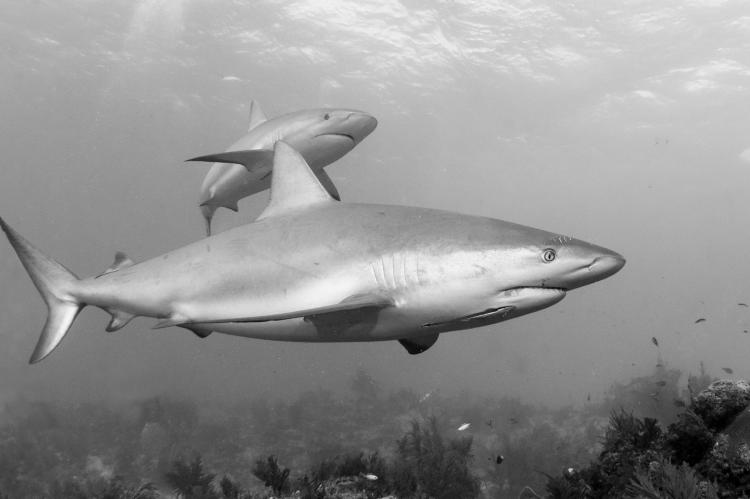Smart sharks have robust social networks
In the media, sharks are depicted as solitary animals, swimming the vast seas on their own. Even in sessions where sharks are attracted to a specific location (for example, during a shark feeding session), the sharks behave as individuals.
Some recent research has arisen to debunk this misconception. The fact is that sharks develop strong social networks with one another, to the extent of forming their own "cliques" during the breeding season.
A study by Macquarie University showed that the social networks of the blacktip reef shark are so strong that it is not affected when individual sharks were removed. In fact, the population could survive being reduced by 50 percent before the entire network collapsed.
Describing this as a sign of a resilient society, study author Dr Johann Mourier from the Centre de Recherche Insulaire et Observatoire de l'Environnement explained that “The sharks have many relationships with other sharks in their network, so a large number of sharks can be removed from the network before the network breaks down.”
Sharks have traditionally been assumed to show some form of social structure only in specific situations like mating, feeding or migrations. “Even though their social structure is not as complex as that of some mammals, sharks can display an affinity for one another,” said study co-author Associate Professor Culum Brown from the University’s Department of Biological Sciences.
Hanging out with the lads
In another study by Macquarie University, researchers observed that sharks prefer to hang out with specific individuals in their social network, usually those of the same gender and size.
They discovered this after using social network analysis to study the social interaction of Port Jackson sharks in southern Australia. This species undertakes large migrations, from Jervis Bay in New South Wales all the way to Tasmania, and back.
Long-term relationships
“One of the exciting things about this research is that we found the large aggregations that these sharks form in the breeding season is not a random collection of individuals. These sharks prefer to hang out with other individuals who are similar to them,” said Brown.
Co-author Jo Day from Taronga Zoo elaborated, “Both males and females return to the same rocky reef to breed year after year, which is unusual for sharks, but it means that these sharks establish long term relationships over many years.”
Strong networks
The discovery that sharks form strong social networks gives us a better insight into their lives and helps us to better understand—and appreciate—them as a species. In addition, as Brown said, it “will help dispel the 'mindless killer' label these fascinating creatures are all too often lumped with.”


